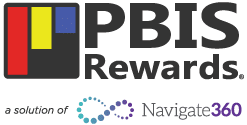Much has been said about the impact that teachers have on school culture and climate, but what about the impacts of student culture on teachers? How does student culture affect staff culture?
The answer is… more than you might think. Student culture and staff culture are closely linked, even though school response to student behavior is perceived differently by both students and staff. Educators view discipline in a variety of ways. Many support a traditional, punitive model of discipline because they believe it to be the most effective way to manage student behavior. Struggling schools often establish zero-tolerance policies with the expectation of improving school culture. However, these policies typically result in a high rate of suspension and/or expulsion and create a negative atmosphere among students.
Behavior and Discipline
How a school responds to student behavior is critical to the establishment of school climate. School climate exists on a scale, from negative to positive, and affects students and staff alike. On one end of the scale is the punitive response, which typically focuses on controlling negative behavior. On the other end of the scale is the positive behavior model, in which the focus is on the recognition of positive behavior.
School discipline systems fall all along this scale. Behavior and discipline are interdependent on each other and student culture often mirrors the climate established by the school’s discipline model. School climate and student culture have bearing on teacher retention from year to year.
Student Response to School Discipline
In many schools, management of student behavior relies on punitive responses to a variety of infractions. This discipline model has been the foundation of education for generations, and some educators see no need to abandon it. The centerpiece of this model is the suspension response. In schools with “zero tolerance” policies, both in-school and out-of-school suspensions are often prescribed for a wide range of offenses.
Exclusionary discipline of this type affects not only the suspended student(s), but also their classmates. In fact, exclusionary discipline can have far-reaching effects that extend past the boundaries of the school campus.
How Suspensions Affect Student Culture
School cultures that focus on order and compliance, with little room for student mistakes, often have higher rates of suspension. This can impact student success in numerous ways. Not only do the suspended students fall behind academically, but so do the students who remain in class.
Students react to punitive environments in numerous ways. They often feel disconnected from peers as well as staff and can experience higher levels of anxiety as it relates to the school environment. They internalize the message that school is all about control – crime control, behavior control. Many students, especially middle and high schoolers, chafe at this message. Often, negative behaviors escalate in response.
A punitive discipline model places the focus on negative behavior. When educators are on high alert for misbehavior, it can foster an adversarial relationship between students and staff. For some students, this type of atmosphere can reinforce negative views they have of themselves and others.
How Student Culture Affects Staff Culture
This adversarial relationship between staff and students can be demoralizing for educators. Teachers recognize that teaching is about relationships, and often, a discipline-heavy environment can interfere with the development of these relationships. Additionally, in many of these punitive environments, enforcement of zero-tolerance policies is inconsistent, as is administrative support.
In such a climate, students find it difficult to respect or trust their teachers. Perhaps unsurprisingly, teachers frequently respond by missing days of school, either through planned time off or by using sick days. Some end up leaving the profession altogether, leaving schools short-staffed and mired in a cycle of poor behavior, disciplinary response, and teacher absence.
Improving School Culture For All
Because student culture and staff culture are so closely linked, developing a positive school climate can be beneficial for all. While you can’t change the external factors affecting some students – including uninvolved parents, troubled families, and economic challenges – you can encourage a positive school environment.
A positive school climate can benefit teachers as well as being a refuge for at-risk students. Research has shown that focusing on positive behaviors can improve academic outcomes for students.
Shifting the focus toward the recognition of positive behaviors changes the way students and teachers relate to each other. Students who feel safe, supported, and encouraged in the school environment perform better academically, improving overall student success. Attendance rates increase while risky behaviors decrease. Graduation rates improve. Students feel more connected to their peers and to their school and are more apt to develop positive relationships with their teachers.
While the focus of improved school climate on student culture gets a great deal of focus, let’s not ignore the benefits for educators. A positive school climate and the resulting improved student culture can result in greater job satisfaction, higher morale, and reduced turnover. Teachers can better navigate such common issues as the mid-year slump and end-of-year burnout. And, focusing on positive student behavior schoolwide can profoundly change the classroom environment, giving teachers more instructional time.
PBIS and Student Culture
A PBIS initiative can help a school to establish schoolwide expectations and a common language relating to behaviors. When employed with fidelity, PBIS can shape student culture in numerous ways. In fact, a strong PBIS initiative can transform the adversarial relationship between students and staff into one of mutual respect and cooperation.
Many schools begin with a manual PBIS initiative, tracking student points by hand or on a spreadsheet. This can quickly become a labor-intensive endeavor, and fidelity can be hard to attain. Managing a PBIS initiative should not be an additional burden on your staff. Instead, take management of PBIS into the digital realm with PBIS Rewards! Our software suite allows schools to operate a digital token economy from beginning to end. Staff can recognize any student, anywhere, any time, and award points individually or in groups. The software tracks student points, enables the easy operation of a school store, and provides lots of customizable reports for teachers and admins. Staff members can even get in on the fun with the Teacher Rewards feature, which allows them to receive points to use on great staff-centric incentives.
Change your student culture, impact your staff culture, and make positive behavior the norm at your school. We’d love to show you how PBIS Rewards can help you do all these things. Request a demo today!
Request a Demo

